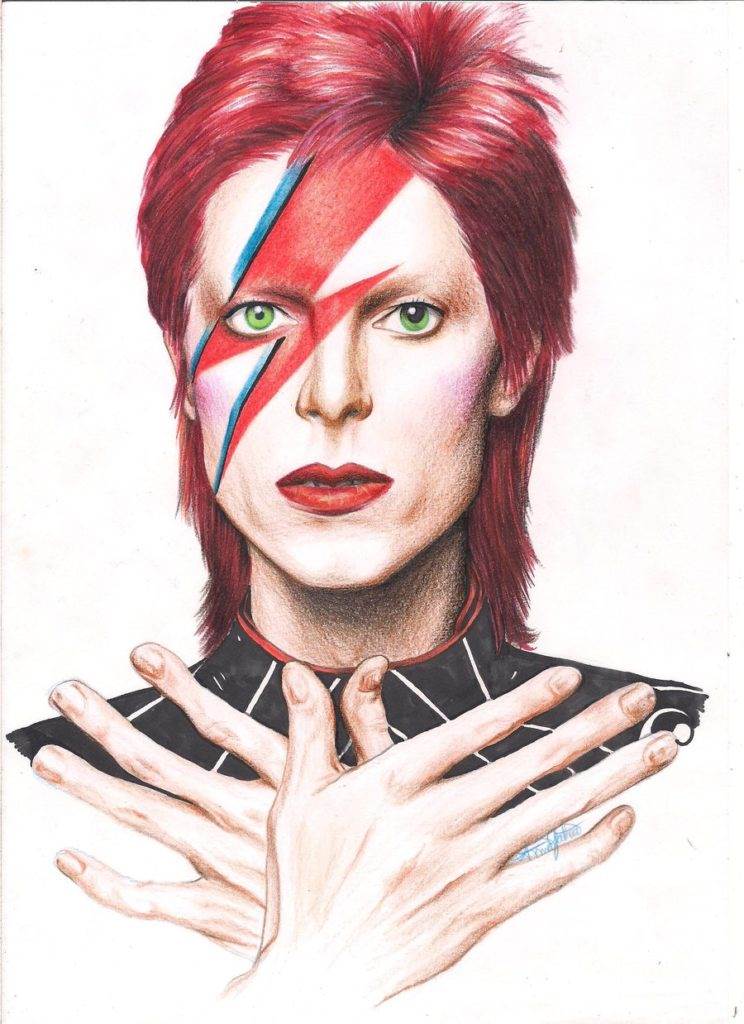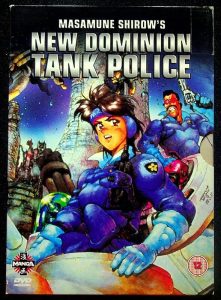David Bowie passed away January 10th, 2016. The Internet was flooded with touching dedications as newsfeeds were filled with music that touched the individuals posting in some sort of way. The people who are ordinarily cynics when cultural icons die instead contributed to the digital memorial. I have been a David Bowie fan for most of my life; ever since I first heard “Ziggy Stardust”, the opening riff of which was among the first things I learned on guitar. When we talk about “retro” here at NRW, we tend to refer to the 80’s. David Bowie’s influence and cultural dominance spanned nearly six decades. The 80’s saw his greatest period of commercial success, but to talk about only that is the do a disservice to one of the most interesting figures in music. This is a look back and ranking of every David Bowie album released (not counting live albums, Tin Machine, or soundtracks, sorry fellow Goblin King fans), a daunting task that I was actually beginning to undertake about a week before Bowie’s passing. The interesting thing about Bowie’s discography is that it is difficult to find two people with the same ranking of his albums. Some of the top 10 will be similar, but Bowie fans go to his music for different things. Enjoy a look back at an artist who never faded away.
25. David Bowie (1967)
Bowie’s first album is a strange one, but not in the way you would expect. It feels like a court jester is singing to you at a Renaissance faire. The songs aren’t bad, and even some of the odd novelty songs have some great melodies, but it is not what you think of when you think of Bowie.
Song to check out: “Sell Me A Coat”
24. Never Let Me Down (1987)
This album actually starts off pretty strong, with some songs having moments that wouldn’t be out of place in a synthwave song. Along with Tonight, this is Bowie’s most 80’s sounding album. It loses steam and the back half has a tendency to drag.
Song to check out: “Day-In Day-Out”
23. David Bowie / Space Oddity (1969)
Though this was rereleased as Space Oddity (the fact that Bowie decided to self-title his second album shows that he was trying to distance himself from his awkward debut), this is not a bad album. This is a really good album. The fact that it is ranked 24th is a ridiculous testament of what is to come.
Song to check out: “Space Oddity”
22. Pin Ups (1973)
Pin Ups is a very fun album, but one that is difficult to rank grand scheme of Bowie albums. The album is comprised of cover songs, each infused with a raw energy. In a lot of ways this is punk record.
Song to check out: “I Wish You Would”
21. Lodger (1979)
Lodger is the last album in the “Berlin Trilogy”, three albums in late 70’s that Bowie recorded with Brian Eno. Lodger is the weakest of the trilogy, despite being the least challenging album to listen to out of the three. It doesn’t have any ambient instrumentals, and a lot of the songs are reminiscent of Eno’s brilliant work with the Talking Heads, but it just doesn’t have what “Heroes” and Low have.
Song to check out: “Look Back in Anger”
20. Tonight (1984)
This is a thoroughly pop affair, and not always of the art-pop variety. Sharing more in common with Phil Collins than anything Bowie made in the 70’s, the album is not as bad as its reputation might lead you to believe. Every song is catchy, and some of them have subtle flourishes that put them above pop songs of the time.
Song to check out: “I Keep Forgettin'”
19. Outside (1995)
AKA Cyber Bowie and the Techno-Goths from Dot Com. This album had lofty ambitions and central narrative driving it, but the aforementioned narrative winds up being an anchor bringing the album down. It has an exhausting runtime of 74:36. Bowie’s work in the 1990’s is underappreciated, but this is the lowest point of that particular era.
Song to check out: “Hallo Spaceboy”
18. Reality (2003)
This album kicks off the final arc of Bowie’s career. The album has a lot of good songs, but suffers in that it doesn’t have much that’s great. The cover art is cool, and it is nice to see Bowie seamlessly transition back into art-pop-rock-whatever, but the best part of Reality is knowing what it would ultimately lead to.
Song to check out: “Fall Dog Bombs the Moon”
17. The Man Who Sold The World (1970)
Bowie’s work in the late 1960’s led to this album, which was his final leap into what he would become. The album is a mostly hard rock affair, with a bunch of psychedelic elements thrown in for good measure. The drumming on the album in particular is on point.
Song to check out: “The Man Who Sold The World”
16. Station to Station (1976)
David Bowie’s 1970’s releases could be described as dizzying. There was a lot of experimentation in a bunch of different directions. Ziggy Stardust was born and subsequently died. The Thin White Duke took his place, and in this album acted as the Silver Surfer to the Galactus that was the Berlin Trilogy.
Song to check out: “TVC15”
15. Scary Monsters (And Super Creeps) (1980)
The 80’s saw a very different artist than the erratic Bowie of the early 70’s or the art house musician of the late 70’s. After emerging from the Berlin Trilogy, David Bowie made an album that incorporated the atmospheric aspects of Low through Lodger, but also infused it with a pop sensibility that would soon take over his entire sound.
Song to check out: “Ashes to Ashes”
14. ‘Hours…’ (1999)
The cover art of ‘Hours…’ offers us some of the best insight into what Bowie was going for with this end of the millennium release. We see the utterly depleted manic David Bowie of the 90’s dying in the arms of a longer haired Bowie. The sonic choices of the 90’s are reapplied in a last hurrah of the decade. The album features a lot of material from the obscure Dreamcast game Omikron: The Nomad Soul, in which Bowie (as well as his wife) has a cameo, and for which he composed the score.
Song to check out: “The Pretty Things Are Going To Hell”
13. Black Tie White Noise (1993)
The 90’s were pretty weird for a lot of artists who had been established by the time the 80’s ended. Huge musical changes were happening in the realms of electronic, rock, and pop music. Like U2’s classic Achtung Baby from two years earlier, Black Tie White Noise saw Bowie immersing himself completely in the new audio landscape of the new decade. The backdrop of electronic music proved to be a canvas for his genius to flourish, creating a prototype for a lot of what he would create at the end of his life.
Song to check out: “Pallas Athena”
12. Let’s Dance (1983)
Black Tie White Noise was a return to Nile Rodgers, the producer used during Let’s Dance. Both albums are located at the beginning of decades, as well as the beginning of David Bowie eras. Though Scary Monsters was the first Bowie album of the 80’s, this was his first 80’s album, if that makes sense. The album has some excellent pop songs, and opens with my personal favorite song of his, “Modern Love”.
Song to check out: “Modern Love” (What else would it be?)
11. Young Americans (1975)
David Bowie made the best Hall & Oates album, and this is coming from an avid Hall & Oats fan. The album is dripping with mid-70’s soul, but has something more sinister running underneath it. Every song plays off of the song before it and the album is cohesive throughout.
Song to check out: “Fascination”
10. Earthling (1997)
When you look at David Bowie’s entire discography, Earthling is his strangest release. The hangover that was ‘Hours…’ came from the party that was Earthling. Bowie takes industrial rock, drum and bass, and grunge music and melds into something feels somehow natural and obnoxious for the chameleonic artist. It’s often overlooked, and you won’t see many people posting songs from it as their memorial to Bowie, but it is full of great songs.
Song to check out: “Little Wonder”
9. The Rise and Fall of Ziggy Stardust and the Spiders from Mars (1972)
This is the part of the list where I make strangers from the internet hate me. The fact that Ziggy Stardust, an album which I agree is one of the most iconic in all of rock music, is not in my top five David Bowie albums is indicative of just how great his musical output was throughout the years. The album isn’t just awesome; it’s cool. Bowie is supremely confident on each track, and the concept works with the music, unlike less skilled attempts at concept albums. If you have a chance, listen to as many live cuts of this album as you can. It really shines in that environment. In fact, I’m going to link to a live version instead of the studio recording.
Song to check out: “Ziggy Stardust”
8. Hunky Dory (1971)
Real talk: “Changes” is one of the greatest pop songs ever made. That’s not even an opinion. It might even be in an encyclopedia somewhere. That’s not the album highlight. Hunky Dory is that good. It is a no-skip album. “Life On Mars” is Bowie’s “Piano Man”, and for good reason. The song is everything that is good about him as an artist.
Song to check out: “Life On Mars”
7. Heathen (2002)
It’s a disservice to focus solely on Bowie’s output from the 1970’s as his “good stuff”. Heathen is a fantastic album, capturing a lot of the global paranoia that has sprung up since 2001. Though Bowie was born in London, by this point he was living in New York. The events of 9/11 had an impact on him and his family, and it would be echoed in this album.
Song to check out: “Slow Burn”
6. Aladdin Sane (1973)
How do you follow the incredible one-two punch of Hunky Dory and Ziggy Stardust? By combining some of the best elements of both of those albums. Aladdin Sane doesn’t waste a second in its 40 minute run, staying catchy and energetic throughout.
Song to check out: “Panic In Detroit”
5. The Next Day (2013)
Can we talk about how dope the cover of this album is? Throwing a big white square on top of one of the most iconic album covers (one of his own albums, of course) and adorning it with the new album title solidifies Bowie as an artist who simply does not give an expletive. The album was recorded in secret, and was his most consistent album since Let’s Dance, yet had all of the artistic aspirations of his 70’s discography.
Song to check out: “The Next Day”
4. Diamond Dogs (1974)
Diamond Dogs is a nasty album in the best possible way. The album follows the concept of a dystopian future, but the concept never hijacks the music. The primary focus seems to have been on making excellent songs, then adapting them for the concept. Like Pin Ups, Diamond Dogs is in many ways a punk record, albeit one with more musicality than many of the punk classics that would be released in the ten years following it.
Song to check out: “Rebel Rebel”
3. Blackstar (2016)
Blackstar is a difficult album to assess. It was released two days before his death, and I immediately devoured it. I had known it would be in my top 3 almost immediately. It does a lot in 7 songs, and a lot of the things it does are musical directions and flourishes that I personally adore in music. I love ambient music. I love jazz. I love Kid A-esque electronic production. Blackstar has all of that, and turns it into something unabashedly Bowie. It is unbelievably self-assured, and I think it would be held up as one of the best albums of this decade even if David Bowie hadn’t passed away. It is prophetic and breathtaking from beginning to end.
Song to check out: “Lazarus”
2. Low (1977)
It’s clear when listening to Low that Brian Eno and David Bowie where explosive with creative energy when they were in the studio together. The album kicks off the Berlin Trilogy and wastes no time in becoming weird. Many of the songs on the album are instrumental, but manage to be well-composed and interesting that you don’t always notice. The album is thoroughly enjoyable, despite being tied with Blackstar as the most challenging of Bowie’s works.
Song to check out: “Sound and Vision”
1. “Heroes” (1977)
One gets dizzy when you think of how the same creative force churned out Low and “Heroes” in the same year. The album exists and the yang to the yin of Low, being a more positive and upbeat experience than its predecessor. It can be moody at times, particularly in the ambient instrumentals, but a keen focus on melody and artistry elevate this album to its status as not just the greatest Bowie albums, but easily one of the greatest albums of all time. You should check out all of the songs from it, but if I had to pick one, it would be the title track.
Song to check out: “Heroes”
I have created a YouTube and Spotify playlist of all recommended songs. If you would like to listen to them while applying glam rock makeup, you may help yourself!

Joey Edsall was born and raised near Scranton, Pennsylvania. He has always immersed himself in art, being an avid fan of film and music. In addition to the electronic production aspect of music, he is the lead guitarist of Scranton-based post-hardcore band Give Us Your Bones.
Photo by Amanda Dittmar
Email: joey.edsall@beta.newretrowave.com
Twitter: @JoeyEdsall




